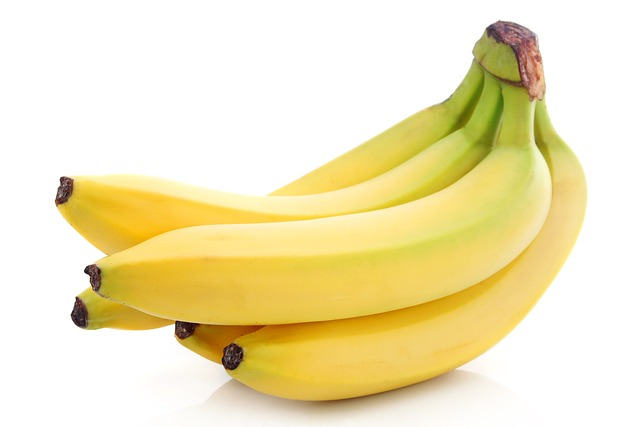Section 1: What is Potassium?
Potassium is a mineral that is essential for various bodily functions. It is an electrolyte that helps regulate fluid balance, muscle contractions, and nerve impulses. Potassium is also important for maintaining healthy blood pressure levels and preventing heart disease.
Most people obtain potassium through their diet, as the body cannot produce this mineral on its own. The recommended daily intake of potassium for adults is around 2,500-3,000 milligrams.
Good dietary sources of potassium include fruits, vegetables, legumes, nuts, and whole grains. Some examples of high-potassium foods include bananas, sweet potatoes, spinach, lentils, almonds, and quinoa.
Section 2: Health Benefits of Potassium
Getting enough potassium in your diet has numerous health benefits. For example, studies have shown that a high potassium intake can lower blood pressure, reduce the risk of stroke, and improve heart health.
Furthermore, potassium may also help improve bone health, as it can neutralize acids in the body and prevent calcium loss. Additionally, potassium has been linked to improved kidney function and reduced risk of kidney stones.
Finally, potassium is important for maintaining muscle function and preventing muscle cramps, making it especially important for athletes and active individuals.
Section 3: Potassium and Blood Pressure
One of the most well-known benefits of potassium is its ability to lower blood pressure. Several studies have shown that a higher intake of potassium is associated with lower blood pressure levels.
This is because potassium can help counteract the effects of sodium, which is known to increase blood pressure. By consuming more potassium, you can help balance out the sodium in your diet, which can ultimately lead to lower blood pressure levels.
In addition to dietary sources, some people may benefit from taking potassium supplements to help lower their blood pressure. However, it’s important to talk to your doctor before taking any supplements, as excessive potassium intake can be harmful.
Section 4: Potassium and Heart Health
In addition to lowering blood pressure, potassium is also important for overall heart health. Studies have shown that a higher potassium intake is associated with a lower risk of heart disease.
This is because potassium can help regulate heart rhythm and prevent arrhythmias. Additionally, potassium can help reduce inflammation and oxidative stress, which are both risk factors for heart disease.
Therefore, consuming more potassium-rich foods can help improve heart health and reduce the risk of heart disease.
Section 5: Potassium and Bone Health
While calcium is often touted as the most important mineral for bone health, potassium also plays a crucial role.
By neutralizing acids in the body, potassium can help prevent calcium loss and promote bone density. Additionally, potassium can help reduce the risk of osteoporosis, especially in postmenopausal women.
Therefore, consuming a diet rich in both calcium and potassium can help improve bone health and reduce the risk of fractures and osteoporosis.
Section 6: Potassium and Kidney Function
Another important benefit of potassium is its ability to improve kidney function. Studies have shown that a higher potassium intake is associated with a lower risk of kidney disease and improved kidney function.
This is because potassium can help reduce the levels of protein in the urine, which is a marker of kidney damage. Additionally, potassium can help prevent the formation of kidney stones by promoting urine production and reducing the levels of calcium in the urine.
Therefore, consuming more potassium-rich foods can help improve kidney health and reduce the risk of kidney disease and kidney stones.
Section 7: Potassium and Athletic Performance
As mentioned earlier, potassium is important for maintaining muscle function and preventing muscle cramps. Therefore, it’s no surprise that potassium is also important for athletic performance.
By helping to maintain proper fluid balance and electrolyte levels, potassium can help athletes perform at their best and prevent cramping and fatigue.
Furthermore, some research has suggested that a higher potassium intake may improve endurance exercise performance, although more research is needed in this area.
Section 8: Getting Enough Potassium on a Plant-Based Diet
For health-minded, plant-based individuals, getting enough potassium in the diet is relatively easy. Many plant-based foods are rich in potassium, including fruits, vegetables, legumes, nuts, and whole grains.
Some examples of high-potassium plant-based foods include:
– Bananas: 422 mg per medium banana
– Sweet potatoes: 542 mg per 1/2 cup cooked
– Spinach: 420 mg per 1/2 cup cooked
– Lentils: 365 mg per 1/2 cup cooked
– Almonds: 200 mg per 1/4 cup
– Quinoa: 318 mg per 1/2 cup cooked
By incorporating these foods into your diet on a regular basis, you can ensure that you are getting enough potassium to support your health and wellbeing.
Section 9: Precautions and Side Effects of Potassium
While potassium is generally considered safe and beneficial, there are some precautions and side effects to be aware of.
Firstly, consuming too much potassium can be harmful, especially for individuals with kidney disease or taking certain medications. Symptoms of excessive potassium intake may include nausea, vomiting, diarrhea, and irregular heartbeat.
Additionally, some medications may interact with potassium, including certain blood pressure medications and diuretics. Therefore, it’s important to talk to your doctor before taking any potassium supplements or drastically increasing your dietary intake of potassium.
Section 10: Conclusion
Potassium is an essential mineral that is important for various bodily functions, including fluid balance, muscle contractions, and nerve impulses. Consuming enough potassium in the diet has numerous health benefits, including lower blood pressure, improved heart health, and better bone and kidney function.
For health-minded, plant-based individuals, getting enough potassium is relatively easy, as many plant-based foods are rich in this mineral. By incorporating potassium-rich foods into your diet, you can support your overall health and wellbeing.




